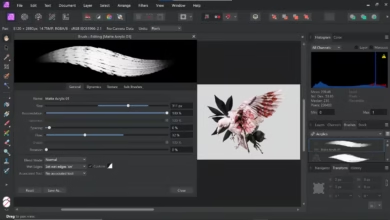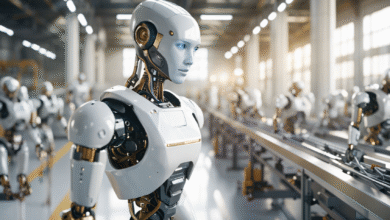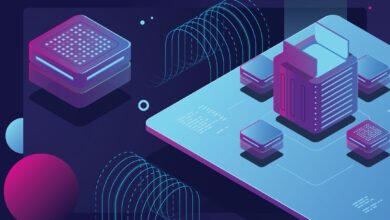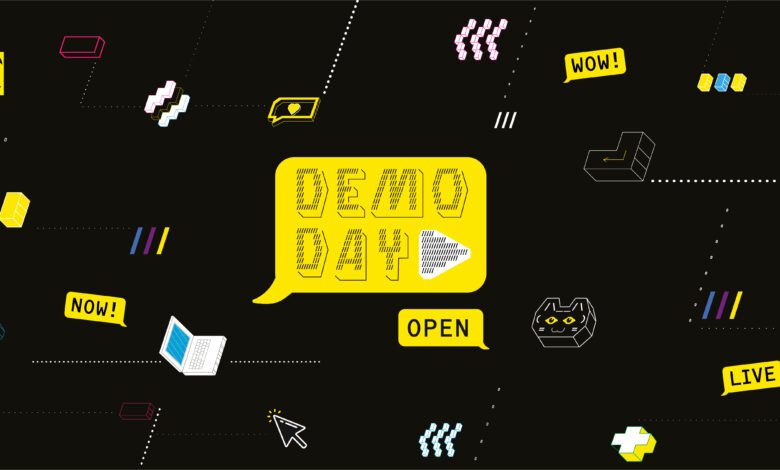
The world of artificial intelligence is rapidly evolving, and AI demo days have become the premier battleground where innovative startups showcase their groundbreaking technologies to investors, industry leaders, and the global tech community. These high-stakes events serve as launchpads for the next generation of breakthrough technology, transforming ambitious ideas into billion-dollar enterprises that shape our digital future.
Demo days have evolved from simple pitch sessions into sophisticated showcases where startups demonstrate cutting-edge AI solutions across diverse industries. From machine learning algorithms that revolutionize healthcare diagnostics to autonomous systems that redefine transportation, these events provide an exclusive window into tomorrow’s technological landscape. Major accelerators like Y Combinator, Techstars, and emerging specialized AI incubators now dedicate entire sessions to AI startups, recognizing the unprecedented potential these ventures hold.
The significance of AI demo days extends beyond mere fundraising opportunities. They represent critical inflection points where theoretical research meets practical application, where academic innovations transform into market-ready solutions. For entrepreneurs, these events offer unparalleled access to venture capital, strategic partnerships, and media coverage that can catapult their startup technology into global prominence. For investors, demo days provide curated access to the most promising AI innovations before they reach mainstream markets.
Recent statistics reveal that over 80% of startups presenting at major demo days now incorporate artificial intelligence components, with sectors ranging from fintech and healthcare to enterprise software and consumer applications. This surge reflects not just market demand but also the increasing accessibility of AI tools and frameworks that enable entrepreneurs to build sophisticated solutions with smaller teams and reduced capital requirements. As we witness this technological renaissance, AI demo days continue to serve as the epicenter where breakthrough innovations meet the resources needed to scale globally.
What Are AI Demo Days
AI demo days represent specialized showcase events where artificial intelligence startups present their innovative solutions to carefully curated audiences of investors, industry experts, and potential partners. Unlike traditional business presentations, these AI Demo Days emphasize live product demonstrations, real-world applications, and measurable impact metrics that illustrate how AI technology addresses specific market challenges.
The format typically involves rapid-fire presentations lasting between 3-10 minutes, where founders must articulate their value proposition, demonstrate core functionality, and present compelling business metrics within extremely tight timeframes. This constraint forces entrepreneurs to focus on the most compelling aspects of their breakthrough technology, creating an environment where only the most refined and impactful solutions capture audience attention.
Startup showcases at AI demo days differ significantly from general technology presentations by requiring tangible proof of artificial intelligence capabilities. Participants must demonstrate actual machine learning models, show real-time data processing, or present measurable improvements in accuracy, efficiency, or user experience. This emphasis on demonstrable results separates genuine AI innovations from companies simply incorporating AI buzzwords into their marketing strategies.
The audience composition at AI demo days typically includes venture capitalists specializing in technology investments, corporate development teams seeking strategic acquisitions, fellow entrepreneurs exploring collaboration opportunities, and technology journalists covering emerging trends. This diverse mix creates multiple pathways for startups to achieve their objectives, whether securing funding, forming partnerships, or gaining market visibility.
Modern AI Demo Days events increasingly incorporate virtual elements, enabling global participation and expanding reach beyond geographical limitations. Hybrid formats combine in-person networking advantages with online accessibility, allowing international investors and remote team members to participate meaningfully in these critical milestone events.
The Evolution of Demo Days in the AI Era
The transformation of traditional AI Demo Days into AI-focused showcases reflects broader shifts in technology entrepreneurship and venture capital investment patterns. Early demo events primarily featured software applications, e-commerce platforms, and basic web services, but the rise of artificial intelligence has fundamentally altered both the complexity and potential impact of presented solutions.
Historical context reveals that the first major startup AI Demo Days emerged in the early 2000s, coinciding with the internet boom and increasing venture capital activity. However, these events primarily showcased straightforward business models with predictable revenue streams and familiar market dynamics. The introduction of AI technology has exponentially increased both the potential rewards and inherent risks associated with startup investments.
The proliferation of machine learning frameworks, cloud computing resources, and open-source AI tools has democratized access to sophisticated breakthrough technology. This accessibility enables smaller teams to develop solutions that previously required massive corporate research budgets, fundamentally changing the startup landscape. Consequently, AI Demo Days now feature solutions with unprecedented technical complexity and market potential.
Investment patterns have shifted dramatically, with AI-focused startups commanding higher valuations and attracting larger funding rounds compared to traditional software companies. This trend reflects investor recognition that AI innovations often create winner-take-all market dynamics, where successful solutions can quickly dominate entire industries through network effects and continuous learning advantages.
The evolution extends beyond technology to encompass presentation formats and evaluation criteria. Modern demo day presentations increasingly emphasize technical differentiation, data advantages, and algorithmic performance metrics rather than traditional business metrics like customer acquisition costs or monthly recurring revenue. This shift requires entrepreneurs to develop new storytelling capabilities that effectively communicate complex technical concepts to diverse audiences.
Major AI Demo Day Platforms and Events
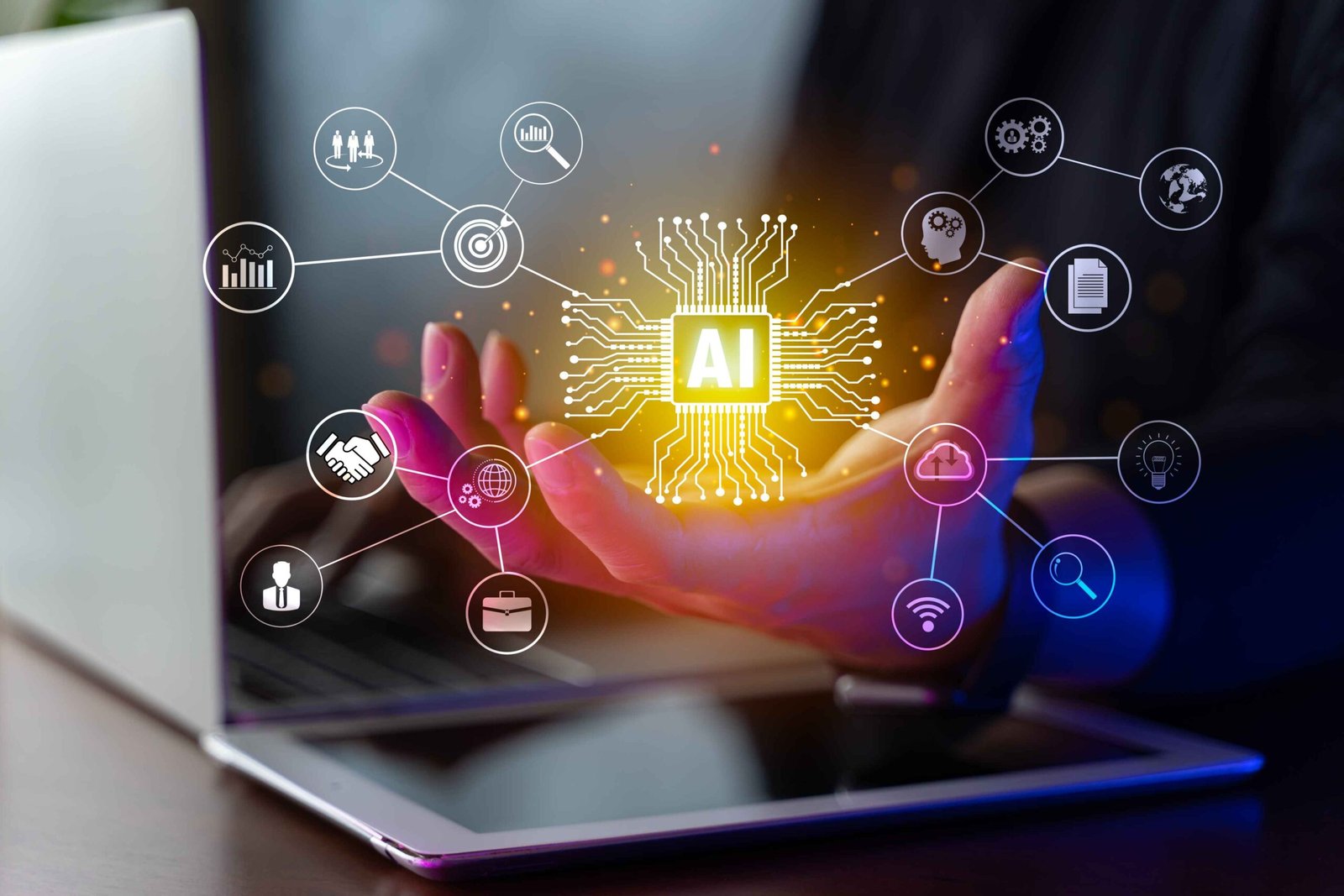
Y Combinator Demo Day
Y Combinator remains the gold standard for startup showcases, with recent batches featuring over 80% AI-related companies. The bi-annual event attracts approximately 1,500 investors and has launched companies worth over $400 billion collectively. YC Demo Day provides unparalleled access to top-tier venture capital and has become synonymous with startup success in Silicon Valley.
The rigorous selection process ensures only the most promising AI startups reach the AI Demo Days stage. Companies undergo intensive three-month acceleration programs focusing on product development, market validation, and presentation refinement. This preparation results in highly polished demonstrations that effectively communicate complex AI technology concepts to investor audiences.
Recent YC Demo Days have showcased breakthrough innovations in autonomous vehicles, healthcare diagnostics, financial services automation, and enterprise productivity tools. The event’s prestige attracts global media attention, providing participating startups with valuable publicity beyond immediate funding opportunities.
Techstars Demo Day
Techstars operates multiple AI Demo Days events across different cities and industry verticals, with increasing focus on artificial intelligence applications. Their program emphasizes mentor-driven development and provides startups with extensive industry connections that extend beyond traditional venture capital relationships.
The Techstars approach differs from Y Combinator by offering more personalized support and longer-term relationships with portfolio companies. This model particularly benefits AI startups that require longer development cycles and more specialized technical guidance during critical growth phases.
Specialized AI Demo Days
Emerging specialized platforms focus exclusively on AI Demo Days, providing more targeted audiences and industry-specific expertise. Events like AI Demo Days (demodays.ai) offer regular showcases in major technology hubs, including London, New York, and San Francisco, creating more frequent opportunities for AI entrepreneurs to connect with relevant investors and partners.
Government-sponsored events, such as the CMS Artificial Intelligence Demo Days, demonstrate how public sector organizations increasingly recognize AI’s potential to improve service delivery and operational efficiency. These events create unique opportunities for startups to engage directly with large institutional customers and regulatory bodies.
Corporate-sponsored AI Demo Days events hosted by major technology companies provide startups with access to potential acquisition opportunities and strategic partnerships. Companies like AWS, Google, and Microsoft regularly host showcases that help them identify promising AI innovations for potential investment or acquisition.
Types of AI Startups That Participate
Machine Learning and Data Analytics Startups
AI startups specializing in machine learning platforms and data analytics solutions represent the largest category at most AI Demo Days. These companies develop tools that enable other businesses to implement AI capabilities without requiring extensive in-house expertise. Their solutions often focus on specific industries like healthcare, finance, or manufacturing, providing specialized algorithms optimized for sector-specific challenges.
Successful examples include companies developing automated medical diagnosis systems, financial fraud detection platforms, and predictive maintenance solutions for industrial equipment. These startup technologies demonstrate clear value propositions with measurable return on investment metrics that appeal to enterprise customers and investors alike.
Natural Language Processing and Conversational AI
The explosive growth of conversational AI and natural language processing has created numerous opportunities for specialized AI startups. Companies developing chatbots, virtual assistants, and language translation services represent a significant portion of AI Demo Days presentations, especially following the mainstream adoption of large language models.
These startups often differentiate themselves through industry-specific training data, specialized vocabularies, or unique interaction modalities that address specific user needs. Successful companies in this space demonstrate a superior understanding of context, emotion, or technical terminology compared to general-purpose solutions.
Computer Vision and Robotics
AI demo days increasingly feature startups leveraging computer vision for applications ranging from autonomous vehicles and medical imaging to retail automation and security systems. These companies often present compelling visual demonstrations that clearly illustrate their breakthrough technology capabilities to diverse audiences.
Robotics startups combining AI with physical automation represent some of the most capital-intensive participants at AI Demo Days events. However, their potential to transform entire industries makes them attractive to investors seeking high-impact opportunities with significant competitive advantages.
AI Infrastructure and Development Tools
A growing category of AI startups focuses on providing infrastructure and development tools that accelerate AI implementation for other companies. These solutions address critical bottlenecks in AI development, including data preparation, model training, deployment, and monitoring.
Infrastructure startups often target technical audiences and emphasize performance metrics, scalability advantages, and cost reduction benefits. Their presentations typically include detailed technical demonstrations and comparative benchmarks that illustrate superior capabilities compared to existing solutions.
The Demo Day Process: From Application to Presentation
Application and Selection Process
The journey to AI Demo Days begins with rigorous application processes that evaluate technical innovation, market potential, team capabilities, and traction metrics. Selection committees typically include experienced entrepreneurs, venture capitalists, and technical experts who understand both the challenges and opportunities in artificial intelligence markets.
Startup applications must demonstrate clear differentiation from existing solutions, articulate compelling value propositions, and present evidence of customer demand or market validation. The competition is intense, with acceptance rates for premier programs often below 5%, making selection itself a significant achievement that validates startup potential.
Application materials typically include detailed technical documentation, market analysis, financial projections, and team background information. Many programs also require working product demonstrations or prototype videos that illustrate core functionality and user experience design.
Preparation and Coaching

Selected AI startups undergo intensive preparation periods that focus on presentation development, technical demonstration refinement, and strategic messaging optimization. Professional coaches work with founding teams to distill complex AI technology concepts into clear, compelling narratives that resonate with diverse audiences.
The preparation process often reveals gaps in market understanding, technical implementation, or business model design that require rapid iteration and improvement. This intensive development period frequently results in significant product enhancements and strategic pivots that strengthen overall business positioning.
Practice sessions simulate actual AI Demo Days conditions, including time constraints, technical difficulties, and challenging audience questions. This preparation ensures presentations run smoothly and founders can effectively handle unexpected situations during their critical showcase moments.
Presentation Guidelines and Best Practices
Successful AI Demo Days presentations follow proven formats that balance technical demonstration with business case development. The most effective presentations begin with clear problem statements, demonstrate solution capabilities through live examples, present market size and traction metrics, and conclude with specific funding requirements and growth plans.
Technical demonstrations must be carefully choreographed to avoid common pitfalls like network connectivity issues, software bugs, or overly complex explanations that confuse non-technical audience members. The most successful AI startups prepare multiple demonstration scenarios and have backup plans for technical difficulties.
Storytelling elements that connect breakthrough technology to real-world impact create emotional connections with audiences beyond pure technical achievement. Presentations that illustrate how AI solutions improve human outcomes or solve meaningful problems often generate stronger investor interest than those focusing solely on technical capabilities.
Key Success Factors for AI Startups at Demo Days
Technical Excellence and Innovation
AI startups must demonstrate genuine technical breakthroughs that create sustainable competitive advantages in their target markets. Surface-level AI implementations or minor modifications to existing algorithms rarely generate significant investor interest at competitive AI Demo Days. Successful companies present innovations that represent meaningful advances in accuracy, efficiency, or capability compared to current market standards.
Technical excellence extends beyond core algorithms to encompass entire solution architectures, including data processing pipelines, user interfaces, and integration capabilities. Startup technologies that demonstrate superior engineering quality and thoughtful system design often outperform competitors with similar core AI capabilities.
Documentation and reproducibility of technical results provide credibility that supports bold performance claims. Startups that present peer-reviewed research, published benchmarks, or third-party validation of their AI technology establish trust with sophisticated investor audiences who understand technical evaluation criteria.
Market Validation and Customer Traction
Even revolutionary AI innovations require evidence of market demand and customer adoption to attract serious investment consideration. Successful AI Demo Days presentations include specific customer examples, usage metrics, revenue growth, and testimonials that validate market fit beyond theoretical potential.
Customer traction demonstrates not only market demand but also the startup’s ability to deliver working solutions that create measurable value. Investors increasingly focus on companies that have progressed beyond prototype stages to deliver production-ready systems with paying customers.
Partnership announcements with established enterprises or government organizations provide additional validation while also suggesting scalable distribution channels. AI startups that secure strategic relationships often receive higher valuations and more favorable investment terms.
Strong Team and Leadership
The complexity of artificial intelligence development requires multidisciplinary teams combining technical expertise, domain knowledge, and business acumen. Successful AI startups present founding teams with complementary skills, relevant industry experience, and track records of previous achievements in technology or business development.
Technical credibility often depends on team members’ educational backgrounds, research publications, previous employment at leading technology companies, or contributions to open-source AI projects. However, pure technical capability must be balanced with commercial experience and leadership skills necessary for building successful businesses.
Diversity in team composition, including varied professional backgrounds and demographic representation, increasingly influences investor evaluation criteria. Teams that demonstrate inclusive hiring practices and diverse perspectives often receive additional consideration from forward-thinking venture capital funds.
Clear Value Proposition and Business Model
AI Demo Days presentations must articulate clear paths from technical innovation to sustainable business value creation. Investors need to understand not just what the technology does, but how it creates economic value for customers and generates revenue for the startup.
Business model clarity becomes particularly important for AI startups because many innovative technologies can be applied to multiple markets or implemented through various commercial structures. Companies that present focused go-to-market strategies with specific target customers and pricing models demonstrate strategic thinking beyond pure technical development.
Revenue diversification potential provides additional investment attractiveness, especially for AI technologies that can be applied across multiple industries or use cases. Startups that illustrate platform potential or network effects often receive premium valuations compared to single-application solutions.
What Investors Look for in AI Startups
Technical Moats and Competitive Advantages
Savvy investors in AI startups prioritize companies with sustainable competitive advantages that protect against rapidly evolving competition. Technical moats might include proprietary datasets, unique algorithms, specialized hardware integrations, or exclusive partnerships that create barriers to entry for potential competitors.
Data advantages represent particularly valuable moats in artificial intelligence, where access to high-quality training data often determines model performance. AI startups that demonstrate exclusive access to valuable datasets or unique data generation capabilities often attract premium investment interest from venture capitalists.
Intellectual property portfolios, including patents, trade secrets, and proprietary methodologies, provide additional protection for breakthrough technology. However, investors increasingly recognize that execution speed and market positioning often matter more than patent protection in rapidly evolving AI markets.
Scalability and Market Size
AI demo days attract investors specifically seeking opportunities with massive scalability potential and large addressable markets. Successful presentations must demonstrate how AI technology solutions can serve thousands or millions of customers without proportional increases in operational costs or complexity.
Market size analysis should encompass both current addressable markets and expansion opportunities created by AI capabilities. Many successful AI startups initially target specific niches but present clear paths to broader market penetration as their technology matures and gains market acceptance.
Geographic expansion potential provides additional scalability considerations, especially for solutions that can be adapted to different languages, regulations, or cultural contexts. International market opportunities often justify higher valuations for AI innovations with global application potential.
Revenue Potential and Business Metrics
Investors evaluate AI startups using both traditional business metrics and AI-specific performance indicators that predict long-term success. Revenue growth rates, customer acquisition costs, and retention metrics remain fundamental, but AI companies must also demonstrate improving model performance, data quality, and technical efficiency over time.
Recurring revenue models receive premium valuations compared to project-based or one-time licensing arrangements. AI technologies that create ongoing customer relationships and continuous value delivery provide more predictable cash flows and higher customer lifetime values.
Gross margin analysis becomes particularly important for AI startups because computational costs, data storage requirements, and model training expenses can significantly impact profitability. Companies that demonstrate improving unit economics as they scale often receive more favorable investment terms.
Team Expertise and Execution Capability
The complexity of artificial intelligence development requires exceptional team capabilities across multiple disciplines. Investors evaluate not just current team composition but also the ability to attract and retain top talent in highly competitive technology markets.
Previous startup experience, especially in successfully scaling technology companies, provides valuable credibility for founding teams. Investors often prefer teams that have navigated challenges like product-market fit, scaling operations, and managing rapid growth in technology businesses.
Advisory board composition and investor backing provide additional validation of team quality and execution potential. AI startups with respected advisors and strategic investors often receive favorable treatment from additional funding sources.
Measuring Success: Metrics and Outcomes
Immediate Demo Day Results
Success at AI Demo Days can be measured through immediate outcomes, including investor meetings scheduled, funding commitments received, and media coverage generated. Top-performing presentations typically result in 20-50 investor follow-up meetings scheduled within the first week after the event.
Media coverage metrics include mentions in technology publications, social media engagement, and inclusion in summary articles covering demo day highlights. Positive media coverage often correlates with increased investor interest and can significantly amplify the impact of demo day participation.
Partnership inquiries from potential customers, distribution partners, or strategic acquirers provide additional measures of presentation effectiveness. AI startups that generate significant partnership interest often find accelerated paths to market and revenue generation.
Funding Outcomes and Valuations
The primary success metric for most AI Demo Days participants is securing subsequent funding rounds at favorable valuations. Successful AI startups typically raise seed or Series A rounds within 3-6 months following demo day presentations, often at valuations significantly higher than pre-demo day estimates.
Funding velocity and terms provide important success indicators beyond pure valuation metrics. AI startups that quickly close funding rounds with favorable terms demonstrate strong market positioning and investor confidence in their breakthrough technology potential.
Over-subscription rates for funding rounds indicate exceptional market interest and provide companies with greater leverage in selecting investors and negotiating terms. The most successful AI Demo Days participants often have multiple funding options and can choose investors based on strategic value beyond capital provision.
Long-term Business Growth
Long-term success metrics include revenue growth, customer acquisition, and market share expansion achieved following demo day participation. The most successful companies demonstrate sustained growth trajectories that validate investor confidence and demo day selection committee decisions.
Product development acceleration and feature enhancement often result from increased funding and team expansion enabled by successful AI Demo Days outcomes. Companies that leverage demo day success to accelerate technical development typically maintain competitive advantages and market leadership positions.
Strategic partnerships and acquisition opportunities frequently emerge from demo day exposure and investor networks. Many successful AI startups eventually achieve successful exits through acquisitions by larger technology companies or strategic buyers seeking to acquire AI innovations.
Common Challenges and How to Overcome Them
Technical Demonstration Difficulties
Live technical demonstrations at AI Demo Days present unique risks, including connectivity issues, software bugs, and performance inconsistencies that can undermine otherwise excellent presentations. Successful startups prepare multiple backup scenarios and ensure their AI technology performs reliably under demonstration conditions.
Complex algorithms and data processing systems often require significant computational resources that may not be available in demo day environments. Smart preparation includes pre-computed examples, simplified demonstrations, and clear explanations of full system capabilities that extend beyond what can be shown live.
Audience technical literacy varies significantly at demo events, requiring presentations that communicate sophisticated AI innovations to both technical experts and business-focused investors. The most effective presentations layer technical details appropriately, providing depth for experts while remaining accessible to general audiences.
Market Positioning and Differentiation
The proliferation of AI startups makes differentiation increasingly challenging, especially in crowded application areas like chatbots, recommendation engines, or image recognition. Successful companies clearly articulate unique value propositions that distinguish their solutions from competitive alternatives.
Market timing considerations become critical for AI technologies that may be ahead of market readiness or entering saturated competitive environments. Presentation strategies should address market maturity, competitive positioning, and go-to-market timing to demonstrate strategic market understanding.
Customer education requirements can slow adoption for highly innovative AI solutions that require significant learning curves or workflow changes. Successful startups present clear implementation strategies and change management approaches that accelerate customer onboarding and value realization.
Investment and Funding Challenges

AI startup funding requirements often exceed those of traditional software companies due to computational costs, research and development needs, and longer development cycles. Successful presentations clearly articulate funding requirements and provide detailed explanations of capital utilization strategies.
Valuation expectations must align with market realities and comparable company benchmarks. AI startups that present unrealistic valuation expectations or inadequate justification for premium pricing often struggle to close funding rounds despite strong technical capabilities.
Due diligence complexity for AI technologies can extend the funding timeline and require extensive technical validation. Startups that prepare comprehensive technical documentation and validation materials can accelerate investor evaluation processes and improve closing probabilities.
The Future of AI Demo Days
Emerging Trends and Technologies
AI demo days continue evolving to showcase increasingly sophisticated technologies, including large language models, computer vision advances, robotics integration, and specialized AI applications in healthcare, finance, and enterprise software. Future events will likely feature more complex solutions requiring longer demonstration periods and more technical evaluation criteria.
The integration of virtual and augmented reality technologies may transform demo day presentations by enabling more immersive demonstrations and remote participation options. These technological enhancements could expand global access while maintaining the personal connections essential for investor relationship building.
Specialized vertical AI demo days focusing on specific industries or application areas may emerge to provide more targeted audiences and deeper technical evaluation capabilities. This specialization could improve matching between startups and investors while enabling more sophisticated technical discussions.
Global Expansion and Accessibility
International expansion of AI demo day formats reflects the global nature of artificial intelligence innovation and investment capital. Events in Asia, Europe, and emerging markets provide opportunities for regional startups while attracting international investor participation.
Virtual participation options developed during recent years have permanently expanded accessibility for international participants, remote team members, and investors with geographic or schedule constraints. Hybrid event formats combine in-person networking advantages with global accessibility. Translation technologies and cultural adaptation may enable more seamless international participation, allowing AI startups from non-English speaking regions to participate more effectively in global demo day events.
Integration with AI Development
The application of artificial intelligence to demo day processes themselves creates opportunities for improved matching between startups and investors, automated preliminary screening, and enhanced follow-up coordination. AI-powered tools may help optimize presentation schedules, facilitate networking, and provide real-time feedback.
Data analytics from demo day participation could provide valuable insights into success factors, presentation effectiveness, and market trends that benefit both organizers and participants. This information could improve selection processes and preparation programs.
Machine learning applications might enable predictive modeling for startup success probability based on presentation content, team characteristics, and market conditions. Such tools could enhance investor decision-making while providing startups with improvement recommendations.
More Read: Mobile AI Apps for Personal Finance and Investment Tracking
Conclusion
AI demo days have emerged as the definitive platforms where breakthrough artificial intelligence innovations meet the capital and partnerships necessary for global impact. These events represent far more than traditional pitch competitions; they serve as critical inflection points where theoretical research transforms into market-ready solutions that reshape entire industries. As artificial intelligence continues its unprecedented expansion across virtually every sector of the economy, demo days provide essential forums where entrepreneurs can showcase their AI innovations to the investors, partners, and media that enable rapid scaling and market penetration.
The evolution from general technology showcases to specialized AI demo events reflects the growing recognition that artificial intelligence represents the most significant technological transformation of our time, requiring dedicated platforms that can adequately evaluate and support these complex, high-potential ventures. Success at these events requires not just technical excellence, but also clear market positioning, strong execution capabilities, and the ability to communicate sophisticated AI technology concepts to diverse audiences of investors and industry leaders.
As we look toward the future, AI demo days will continue evolving to accommodate increasingly sophisticated technologies while expanding global accessibility and maintaining the personal connections essential for building successful business relationships. For entrepreneurs developing breakthrough technology solutions, participation in premier demo day events represents an unparalleled opportunity to accelerate growth, secure funding, and establish the strategic relationships necessary for long-term success in the rapidly expanding artificial intelligence economy.



